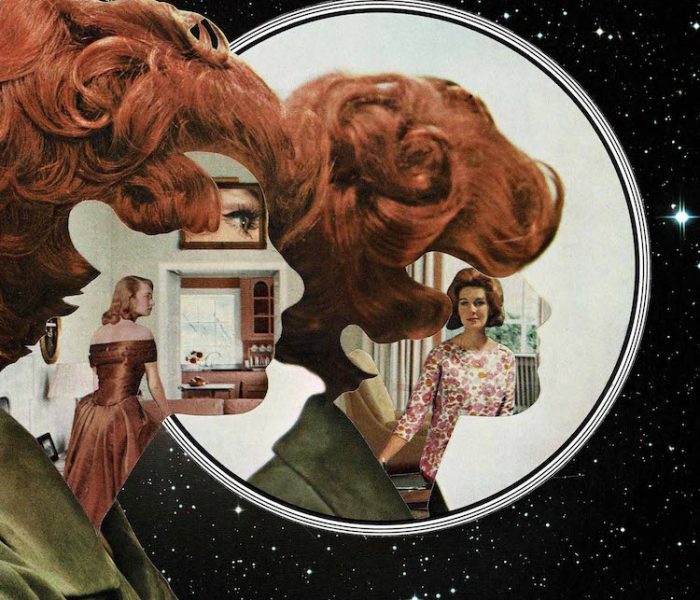In this article you will read about:
Perceptual dysregulation, a unique personality trait, introduces individuals to a world of heightened sensory sensitivity and perception. This trait often involves experiencing sensory stimuli differently than the majority of the population, leading to both advantages and challenges. In this article, we will explore the intricacies of perceptual dysregulation, define its characteristics, examine its subtypes, discuss potential causes, consequences, and offer strategies for embracing and managing this unique perspective in daily life.
Defining Perceptual Dysregulation
Perceptual dysregulation refers to a personality trait characterized by atypical sensory processing and heightened sensitivity to sensory stimuli. Individuals with this trait often perceive the world around them in ways that differ significantly from the norm. These differences can manifest as sensory overload, heightened sensory awareness, or unique sensory experiences.
Subtypes of Perceptual Dysregulation
Sensory Sensitivity
Individuals with sensory sensitivity experience sensory stimuli intensely. This can include heightened sensitivity to light, sound, touch, taste, or smell. Everyday sensations may be overwhelming, leading to discomfort or distress.
Synesthesia
Synesthesia is a subtype of perceptual dysregulation where sensory experiences overlap, leading to unique perceptual associations. For example, someone with synesthesia might perceive colors when hearing music or associate specific tastes with certain words.
Sensory Processing Disorder (SPD)
SPD is characterized by difficulties in processing and responding to sensory information. Individuals with SPD may have strong reactions to sensory stimuli, leading to discomfort, anxiety, or withdrawal in response to certain sensations.
Hyperphantasia
Hyperphantasia involves an exceptionally vivid and detailed imagination, allowing individuals to create elaborate mental images and scenarios. This can lead to intense daydreaming and creative thinking.
"Perceptual dysregulation is a doorway to a world of heightened sensory experiences, where the ordinary becomes extraordinary, and the senses dance to the rhythm of individuality."
Anonymous Tweet
Causes of Perceptual Dysregulation
The development of perceptual dysregulation can be influenced by various factors:
1. Genetic Predisposition
Some individuals may have a genetic predisposition that makes them more prone to heightened sensory sensitivity or unique sensory experiences.
2. Neurological Factors
Differences in brain structure and function can contribute to atypical sensory processing and heightened sensory perception.
3. Early Experiences
Early exposure to diverse sensory environments or traumatic sensory experiences can shape the development of perceptual dysregulation.
4. Genetic and Epigenetic Factors
Emerging research suggests that genetic and epigenetic factors may play a role in the development of sensory sensitivities.
Expert Opinions
"In the tapestry of human diversity, perceptual dysregulation is a vibrant thread, adding depth and complexity to the canvas of human perception."
Emily Roberts, Clinical Psychologist Tweet
"Sensory sensitivity is a unique gift, offering us a heightened connection to the world and a deeper understanding of our own sensory landscape."
John Miller, Psychiatrist Tweet
Consequences of Perceptual Dysregulation
Perceptual dysregulation can have both positive and negative consequences, influencing various aspects of an individual’s life:
1. Heightened Creativity
Many individuals with perceptual dysregulation, particularly synesthetes and those with hyperphantasia, often exhibit heightened creativity and artistic abilities.
2. Sensory Overload
Sensory sensitivity can lead to sensory overload, making everyday experiences overwhelming and exhausting.
3. Emotional Sensitivity
Perceptual dysregulation can amplify emotional responses, making individuals more attuned to their own and others’ feelings.
4. Social Challenges
Social interactions may be challenging for individuals with perceptual dysregulation, as they may struggle to navigate sensory-rich environments and understand the sensory experiences of others.
Managing and Embracing Perceptual Dysregulation
Managing and embracing perceptual dysregulation involves recognizing its unique qualities and finding strategies to navigate sensory sensitivity:
1. Self-Acceptance
Embracing one’s heightened sensory sensitivity or unique sensory experiences as a valuable part of one’s identity can boost self-esteem and resilience.
2. Sensory Management
Identifying sensory triggers and implementing sensory management strategies, such as noise-canceling headphones or sensory breaks, can help individuals manage sensory overload.
3. Creative Outlets
Engaging in creative pursuits, such as art, music, or writing, can provide a constructive outlet for sensory experiences and heightened imagination.
4. Seek Support
Connecting with supportive communities or seeking professional help, such as occupational therapy for sensory processing challenges, can provide valuable guidance and understanding.
Perceptual Dysregulation Book Recommendations
Here is a collection of the best books on the market related to perceptual dysregulation:
Our commitment to you
Our team takes pride in crafting informative and well-researched articles and resources for our readers.
We believe in making academic writing accessible and engaging for everyone, which is why we take great care in curating only the most reliable and verifiable sources of knowledge. By presenting complex concepts in a simplified and concise manner, we hope to make learning an enjoyable experience that can leave a lasting impact on our readers.
Additionally, we strive to make our articles visually appealing and aesthetically pleasing, using different design elements and techniques to enhance the reader’s experience. We firmly believe that the way in which information is presented can have a significant impact on how well it is understood and retained, and we take this responsibility seriously.
Click on the icon to see all your thoughts in the Dashboard.
Your Thoughts about Perceptual Dysregulation
It’s highly recommended that you jot down any ideas or reflections that come to mind regarding perceptual dysregulation, including related behaviours, emotions, situations, or other associations you may make. This way, you can refer back to them on your Dashboard or Reflect pop-ups, compare them with your current behaviours, and make any necessary adjustments to keep evolving. Learn more about this feature and how it can benefit you.
References
Cytowic, R. E. (2002). Synesthesia: A Union of the Senses (2nd ed.). MIT Press.
Miller, L. J., & Lane, S. J. (2000). Toward a Consensus in the Sensory Evaluation of Dysfunction: Definitions and Classification. American Journal of Occupational Therapy, 54(5), 529-536.
Hubbard, E. M., Arman, A. C., Ramachandran, V. S., & Boynton, G. M. (2005). Individual Differences Among Grapheme-Color Synesthetes: Brain-Behavior Correlations. Neuron, 45(6), 975-985.
Ward, J. (2013). Synesthesia. Annual Review of Psychology, 64, 49-75.
Grandin, T., & Scariano, M. (1996). Emergence: Labeled Autistic. Grandin Press.




